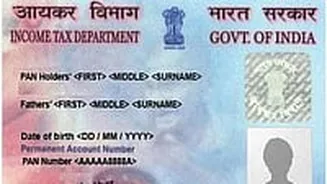ITR Filing Basics
Income Tax Return (ITR) filing is a critical annual task for Indian taxpayers. The process involves submitting relevant financial information to the Income Tax Department,
which assesses the tax liability. The last date for filing the ITR is a crucial deadline. Missing this date can lead to penalties, affecting the taxpayer's finances and compliance status. The ITR form must be filled accurately and in accordance with the prevailing income tax rules and regulations. Various ITR forms are available, each designed for different income sources and categories of taxpayers, such as individuals, businesses, and corporations. Taxpayers need to choose the appropriate form based on their income type. The Income Tax Department provides guidelines and resources to assist taxpayers in understanding the filing process. These resources include detailed instructions, FAQs, and online tools to simplify the process. It's also advisable for taxpayers to keep all relevant financial records and documents. These will be needed to complete the ITR filing accurately. These records can include salary slips, bank statements, investment details, and receipts for eligible deductions, helping to support the claims made in the ITR and making the filing process easier.
Due Date and Extensions
The deadline for filing ITR is critical for all taxpayers. Generally, the last date for filing the ITR is July 31 of the assessment year for individuals and those not requiring an audit. However, this date may be extended by the Income Tax Department. The extension can be influenced by factors like technical glitches in the online portal or significant policy changes. Taxpayers should be aware of such announcements from the Income Tax Department. If an extension is announced, it's crucial to take note of the new deadline to avoid penalties. For taxpayers who require an audit of their accounts, the due date is typically later, often October 31 of the assessment year. This is to allow sufficient time for the audit process. The Income Tax Department regularly provides updates on its website and through various media channels regarding any changes in due dates. Taxpayers are advised to stay informed and plan their filing accordingly. Regular monitoring ensures they meet the deadlines and avoid the consequences of delayed filing. Keeping an eye on official announcements ensures compliance with the latest regulations.
Process & Requirements
ITR filing in India involves several key steps, starting with gathering essential documents and information. This includes details about income, investments, and deductions. Taxpayers need to keep track of their income from different sources, like salary, interest, and capital gains. It is also essential to gather all relevant financial records. These records will be required while filing the ITR. These documents must be organized and ready for reference during the filing process. Next, taxpayers must select the correct ITR form applicable to their income type. The Income Tax Department provides different forms for various categories of taxpayers. Incorrect selection can lead to errors and delays. After choosing the correct form, taxpayers must fill it with accurate details. This includes income figures, deductions claimed, and tax liability calculations. It is important to fill each section of the form meticulously and to ensure that all information is accurate. Verification of the ITR is also crucial. This step confirms the accuracy of the details and completes the filing process. The ITR can be verified online through various methods, like using an Aadhaar-linked mobile number or through a digital signature. After verification, the ITR is considered submitted. This completes the process. Taxpayers must preserve a copy of the filed and verified ITR for future reference. This documentation serves as proof of compliance. Any mistakes or omissions can lead to problems. It is advisable to seek professional assistance to ensure correct filing and compliance with all rules.
Penalties & Consequences
Delayed ITR filing can result in penalties, depending on the delay and the taxpayer's income. If the ITR is filed after the due date, a late filing fee may be levied. The fee amount is determined by the income level and the extent of the delay. Taxpayers with higher incomes may face a higher penalty. In some cases, late filing can also lead to interest charges on the outstanding tax. This means taxpayers may need to pay additional amounts. The interest is calculated from the due date of filing. Besides financial penalties, late filing can also affect other areas. These include the ability to carry forward losses to future assessment years. Taxpayers might lose the opportunity to claim certain tax benefits. Furthermore, persistent non-compliance with tax regulations can lead to more serious consequences. These may include scrutiny by the Income Tax Department. In case of any queries or doubts, taxpayers can seek guidance from tax professionals. Consulting a tax advisor can help to understand the implications of late filing and take corrective actions. A professional can also offer insights on how to avoid penalties and ensure compliance with tax rules. Paying attention to deadlines and adhering to the income tax regulations can protect taxpayers from facing penalties.
Latest Income Tax Updates
The Income Tax Department regularly updates rules and guidelines. These updates are necessary for taxpayers to stay compliant. Recent changes in tax laws, such as new tax slabs or deduction limits, affect the ITR filing process. These changes are frequently announced. It is advised for taxpayers to stay informed about them. The department also upgrades its online portal, introducing new features and improvements. These improvements aim to make the filing experience smoother and more user-friendly. However, these changes may also require taxpayers to adapt to new processes or requirements. For example, the portal might introduce new forms or modify the methods for verification. Furthermore, the Income Tax Department issues clarifications and guidance on specific issues. These clarifications help taxpayers understand the application of tax laws. Taxpayers should also follow the guidelines provided by the Income Tax Department. These include the annual budget announcements and other government initiatives that influence tax regulations. Staying updated with the latest news and developments helps taxpayers navigate the tax landscape effectively. Taxpayers can stay informed by regularly visiting the Income Tax Department’s website and following official announcements.















